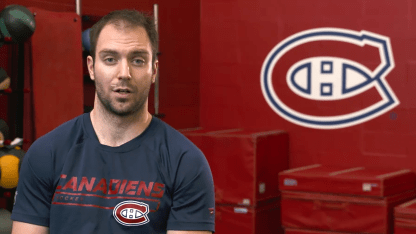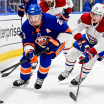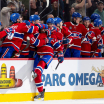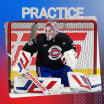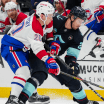On the challenge of not knowing when the NHL's start date will be and how that affects preparations:
"The way we approach it is, we don't want to peak too early. You don't want to be on the ice six times a week and just being exhausted as we get to the 10th. So we use this as a building foundation. We move away from the classic block-block-block prioritization to get to training camp, to more of a development phase: building foundation, making sure we cover all aspects, all athletic qualities, and making sure that the athlete is going to be ready."
On how the team plans on addressing the potential issue of a condensed schedule:
"It's an adaptation. We've already chatted about it: it's going to be a lot of preparation. We're going to sit down with coaches and see how we can best challenge our athletes to perform every night and making made sure they recover. We're going to have to be really detail-oriented, because this has never happened before. Gathering data... Pierre [Allard, Director of sports science and performance] is going to be on top of it."
On working with captain Shea Weber:
"Shea is an exceptional athlete and an exceptional leader. As a quick example, Shea started a competition on the virtual bike with the other guys to keep them physically active and to keep the group together. It's very important to work around the player in terms of what he's capable of doing, what he needs, and what's going to help him have the longest career possible performing at the highest level. So we adjust a lot in function of his physical capability and of what he likes, too. If you take an athlete like Shea Weber, who has so much experience, if we play within what he likes, he's going to perform even better in the gym, which we hope is going to help him perform on the ice."
On Weber's work recovering from long-term injury:
"Shea loves to be on the ice; he loves the game. So it was hard for him but at the same time, our team is very comprehensive. You have to tip your hat to the medical team, the sports science and performance department, the medical director and the coaches as well. Everybody was in the meeting trying to prepare a plan that was optimal for Shea and for the team. When it was established, the plan was reviewed every week. Instead of saying, 'You should be able to skate after the fourth month,' he had blocks to be accomplished every week and every day to be able to go to the next step. That's how he was able to come back in a shorter amount of time."
On Jesperi Kotkaniemi's improved performance in the postseason:
"For KK, it's very simple: he matured a lot. I think it was good for him to go back and think about what he needed to improve on. And it was with discussion; the team in Laval did a great job. You have to tip your hat off to Joël [Bouchard, head coach of the Laval Rocket] and to the team over there that surrounds them very well. I spoke to his strength coach back home: he just spent a lot more time [training]. He understood that he had to train harder in terms of becoming stronger, and he did. So, well done, KK."
